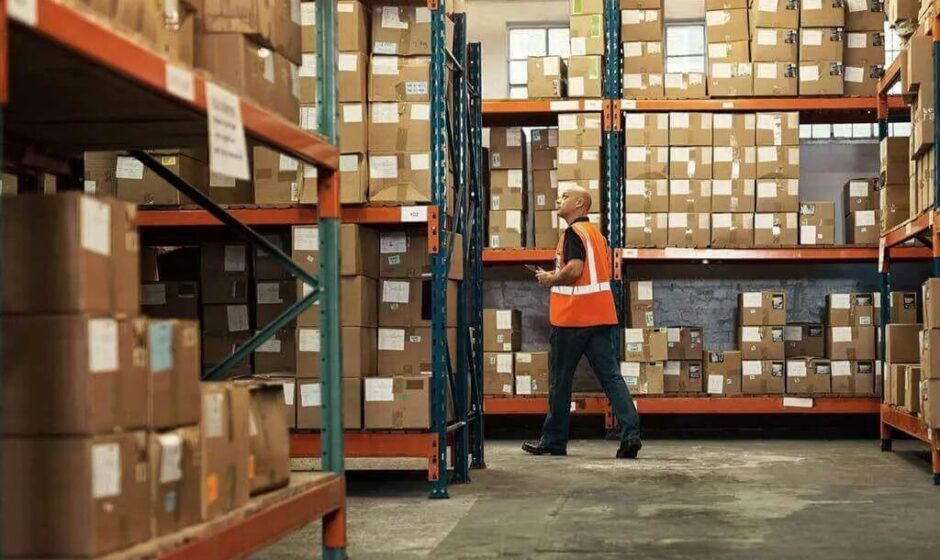Wholesale distributors play a pivotal role in the global supply chain. From manufacturing to the final sale, they act as intermediaries between producers and retailers or other businesses. This article will explore the essential function of Distributors, how they operate, the benefits of using them, and the future of wholesale distribution.
What Is a Wholesale Distributor?
A wholesale distributor is a business entity that purchases goods in bulk directly from manufacturers or producers and sells them in smaller quantities to retailers, resellers, or sometimes directly to consumers. Wholesale distributors do not typically sell directly to the end consumer; their customers are other businesses.
Wholesale distribution is the backbone of many industries, ranging from electronics, food, and clothing, to more specialized sectors like medical supplies and construction materials. The distributor ensures that products move efficiently from the producer to the market, creating a vital link in the supply chain.
The Role of Wholesale Distributors in the Supply Chain
Wholesale distributors are responsible for a number of key tasks that help facilitate smooth transactions between manufacturers and businesses. Their primary roles include:
- Purchasing Goods in Bulk: Distributors buy goods in large quantities from manufacturers, allowing manufacturers to focus on producing rather than dealing with the complexities of selling and distribution.
- Storage and Warehousing: They often own or lease warehouses to store goods, allowing for inventory management and distribution at scale. This helps mitigate supply chain delays, especially when demand fluctuates.
- Breaking Bulk: Distributors take bulk goods and break them down into smaller, more manageable quantities. This allows retailers to buy smaller amounts, which is critical for businesses with limited storage capacity.
- Logistics and Transportation: Distributors are responsible for coordinating the transportation of goods to retailers, ensuring that products reach their destination on time and in good condition.
- Providing Market Intelligence: With their deep understanding of the market and industry trends, distributors often provide valuable insights to manufacturers and retailers. They can help identify trends, customer preferences, and potential areas for growth.
- Managing Credit and Payments: Wholesale distributors may extend credit to retailers or resellers, allowing them to purchase goods without paying immediately. This flexibility helps small businesses and startups manage cash flow.
How Do Wholesale Distributors Operate?
Usa Wholesale Distributors operate under different business models depending on the products they deal with and the market they serve. The basic steps involved in the operation of a wholesale distributor are as follows:
- Source Products: The first step for a distributor is sourcing products from manufacturers. This often involves negotiating prices, shipping terms, and payment arrangements.
- Inventory Management: Once the goods are received, distributors must manage their inventory, ensuring that products are in stock and available when retailers place orders. Effective inventory management ensures that there are no delays in product delivery.
- Sales and Marketing: Distributors typically have a sales team that markets products to potential customers, such as retailers, wholesalers, or resellers. These teams may also provide after-sales support.
- Order Fulfillment: When a retailer places an order, the distributor processes the order, picks, packs, and ships the goods to the retailer. This process may involve automated systems for tracking inventory, order processing, and shipping.
- Customer Support and Returns: Distributors handle customer inquiries, complaints, and product returns. This customer service role ensures that retailers are satisfied with their purchases and continue to place orders.
Types of Wholesale Distributors
Wholesale distributors come in various shapes and sizes. Depending on their focus, they may specialize in specific industries or offer a broad range of products. The most common types of wholesale distributors include:
- General Wholesale Distributors: These distributors offer a wide range of products across different industries. Examples include general merchandise distributors who sell a variety of goods like home appliances, electronics, and clothing.
- Specialized Wholesale Distributors: Specialized distributors focus on a single industry or product category. For instance, a wholesale distributor may specialize in beauty products, industrial equipment, or foodstuffs.
- Drop Shippers: Drop shipping wholesalers act as intermediaries between manufacturers and retailers but don’t hold inventory. When an order is placed, the distributor forwards the order to the manufacturer, who ships the product directly to the customer.
- Importers/Exporters: These distributors deal primarily in international trade. They import goods from overseas manufacturers and distribute them to domestic markets, or they export domestic products to foreign markets.
- Wholesale E-commerce Distributors: With the rise of online shopping, many wholesale distributors now operate primarily through e-commerce platforms. These distributors may offer products in bulk for online businesses or resellers.
Advantages of Using Wholesale Distributors
For businesses, working with Amazon Wholesale Distributors offers several advantages that help streamline operations and enhance efficiency. These include:
- Cost Savings: Wholesale distributors buy in bulk at discounted prices, which means they can offer products at lower rates to retailers or resellers. This is particularly beneficial for businesses that don’t have the resources to purchase large quantities directly from manufacturers.
- Wide Range of Products: Many wholesale distributors offer a broad selection of products, enabling retailers to source a variety of goods from a single distributor. This reduces the time and effort spent finding different suppliers for different products.
- Storage and Inventory Management: By purchasing from distributors, businesses can avoid the hassle of maintaining large amounts of inventory. Distributors often handle warehousing and inventory management, freeing up space for businesses.
- Access to New Products and Market Insights: Distributors are often ahead of trends and can introduce retailers to the latest products. They also provide valuable market insights and feedback from end-users.
- Reduced Risk: Since distributors take on the responsibility of managing inventory and logistics, businesses reduce the risks associated with stockouts or unsold goods.
- Flexible Payment Terms: Wholesale distributors often offer flexible payment options, such as credit or extended payment terms, making it easier for businesses to manage their cash flow.
How to Choose the Right Wholesale Distributor
Choosing the right wholesale distributor is critical to the success of a business. Here are key factors to consider when evaluating potential distributors:
- Product Quality: Ensure that the distributor offers high-quality products that meet industry standards and regulatory requirements.
- Reliability: Look for a distributor with a proven track record of on-time deliveries and excellent customer service. Reliability is crucial in maintaining smooth operations.
- Pricing: Compare pricing structures from different distributors. While lower prices are important, be sure to evaluate whether the quality and service are worth the price.
- Inventory Availability: A good distributor should have enough inventory on hand to fulfill orders promptly. Look for distributors that offer inventory tracking and real-time availability updates.
- Customer Service: Strong customer support is vital in case any issues arise, whether it’s regarding returns, damaged goods, or order discrepancies.
- Shipping and Delivery: Consider the distributor’s shipping and delivery practices, including shipping speed, methods, and costs.
Challenges in Wholesale Distribution
While wholesale distributors provide many advantages, the industry faces several challenges. Some of these include:
- Supply Chain Disruptions: Global events such as the COVID-19 pandemic, trade wars, and natural disasters can cause supply chain disruptions, leading to delays and price increases.
- Increasing Competition: With the rise of e-commerce, wholesale distributors face stiff competition. Online platforms allow businesses to source products from a global network of suppliers.
- Rising Operational Costs: From warehousing and logistics to labor and technology, the cost of running a wholesale distribution business is increasing. This can lead to higher prices for customers.
- Technology Integration: As technology evolves, wholesale distributors must stay up to date with the latest software and systems to manage inventory, order fulfillment, and customer relationships efficiently.
The Future of Wholesale Distribution
The wholesale distribution industry is rapidly evolving due to advancements in technology and changing consumer demands. Key trends shaping the future of wholesale distribution include:
- Digital Transformation: E-commerce platforms and digital tools are transforming how distributors operate. Online ordering, automated inventory management, and data analytics are making distribution more efficient.
- Sustainability: Environmental concerns are pushing distributors to adopt sustainable practices, such as reducing packaging waste, optimizing transportation routes, and using eco-friendly materials.
- Customization: As demand for personalized products grows, wholesale distributors are finding ways to offer more customized solutions for businesses, including tailor-made packaging and bespoke product offerings.
- Global Expansion: With the globalization of markets, many wholesale distributors are expanding their operations to cater to international markets. This increases competition but also opens up new opportunities.
Conclusion
Wholesale distributors are essential players in the supply chain, connecting manufacturers with retailers and resellers. By managing bulk purchases, warehousing, logistics, and inventory, they ensure the efficient flow of goods from production to market. While the Wholesale Extracts Flavorfrenzy industry faces challenges, its evolution toward digital transformation and sustainability will continue to shape its future, making it a dynamic and crucial part of modern commerce.



